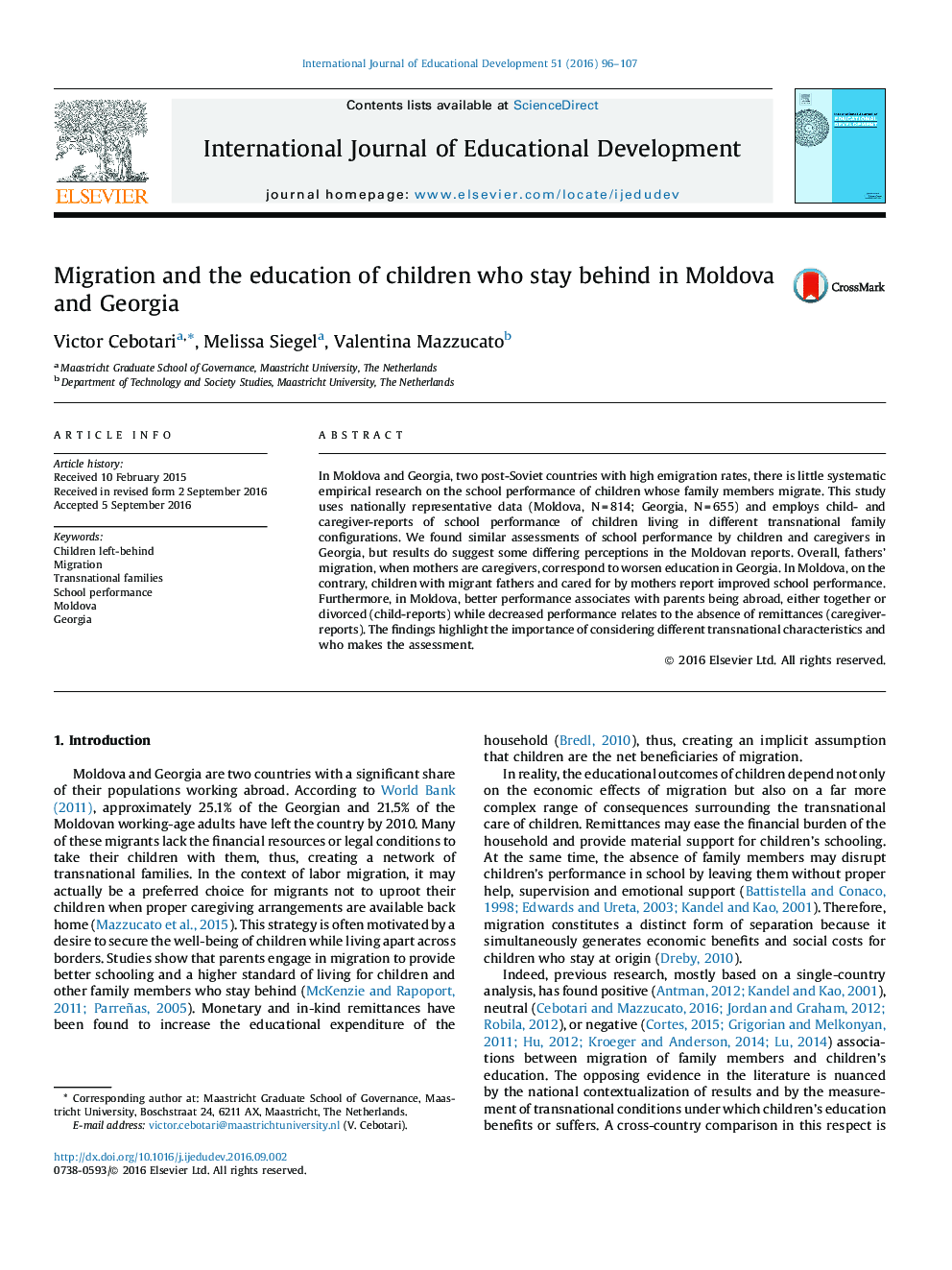| Article ID | Journal | Published Year | Pages | File Type |
|---|---|---|---|---|
| 6841174 | International Journal of Educational Development | 2016 | 12 Pages |
Abstract
In Moldova and Georgia, two post-Soviet countries with high emigration rates, there is little systematic empirical research on the school performance of children whose family members migrate. This study uses nationally representative data (Moldova, NÂ =Â 814; Georgia, NÂ =Â 655) and employs child- and caregiver-reports of school performance of children living in different transnational family configurations. We found similar assessments of school performance by children and caregivers in Georgia, but results do suggest some differing perceptions in the Moldovan reports. Overall, fathers' migration, when mothers are caregivers, correspond to worsen education in Georgia. In Moldova, on the contrary, children with migrant fathers and cared for by mothers report improved school performance. Furthermore, in Moldova, better performance associates with parents being abroad, either together or divorced (child-reports) while decreased performance relates to the absence of remittances (caregiver-reports). The findings highlight the importance of considering different transnational characteristics and who makes the assessment.
Related Topics
Social Sciences and Humanities
Social Sciences
Development
Authors
Victor Cebotari, Melissa Siegel, Valentina Mazzucato,
